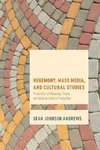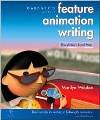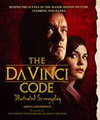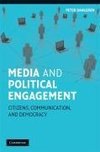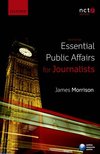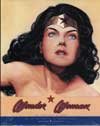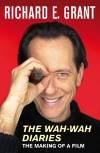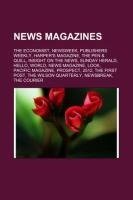
News magazines
Source: Wikipedia. Pages: 49. Chapters: The Economist, Newsweek, Publishers Weekly, Harper's Magazine, The Pen & Quill, Insight on the News, Sunday Herald, Hello, World, News magazine, Look, Pacific Magazine, Prospect, 2512, The First Post, The Wilson Quarterly,... Viac o knihe
Produkt je dočasne nedostupný
16.54 €
bežná cena: 18.80 €
O knihe
Source: Wikipedia. Pages: 49. Chapters: The Economist, Newsweek, Publishers Weekly, Harper's Magazine, The Pen & Quill, Insight on the News, Sunday Herald, Hello, World, News magazine, Look, Pacific Magazine, Prospect, 2512, The First Post, The Wilson Quarterly, Newsbreak, The Courier, OK!, The Banker, MoneyWeek, Brain Blogger, Walkabout magazine, The Majalla, Frank Leslie's Weekly, Der Spiegel-Profil, Gwiazdka Cieszynska, FDi magazine, Monocle, Ad Astra, World Press Review, BCN Week, Veja, CartaCapital, Bookseller and Publisher, Deutsche Rundschau, Dispatches, The Packer, Outlook, Delayed Gratification magazine, Drapers, Business Matters, Tygodnik Cieszynski, Caretas, Taiwan Review, NOW Lebanon, New African, Economic and Political Weekly, Turkish Review, Frontiers, Barn, International Viewpoint, Retail Week, New Africa Analysis, Museums Journal, Columbus Monthly, De Groene Amsterdammer, ISTOÉ, The American Weekly, Islamic Voice, Egypt Today, The Reporter, Pure London, Przekrój, Audrey magazine, Mások, Týden, Época, Newsweek Argentina, A Magazine, Goniec Polski, Al Youm, Datum, Nritoday, Europa Magazine, Whistleblower, News Weekly, Executive Travel magazine, Golwg, Newsweek Selecciones, Healthcare Today, High Plains Journal, The Tridge, West Africa, The World Today Magazine, That's So Hollywood, This Week in Palestine, Fault Lines, Lechaim magazine. Excerpt: The Economist is an English-language weekly news and international affairs publication owned by The Economist Newspaper Ltd. and edited in offices in the City of Westminster, London, England. Continuous publication began under founder James Wilson in September 1843. While The Economist refers to itself as a newspaper, each print edition appears on glossy paper, like a news magazine. In 2009, it reported an average circulation of just over 1.6 million copies per issue, about half of which are sold in North America. The Economist claims it "is not a chronicle of economics." Rather, it aims "to take part in a severe contest between intelligence, which presses forward, and an unworthy, timid ignorance obstructing our progress." It takes an editorial stance which is supportive of free trade and globalisation, along with the expansion of government health and education spending, as well as other, more limited forms of governmental intervention. It targets highly educated readers and claims an audience containing many influential executives and policy-makers. The publication belongs to The Economist Group, half of which is owned by the Financial Times, a subsidiary of Pearson PLC. A group of independent shareholders, including many members of the staff and the Rothschild banking family of England, owns the rest. A board of trustees formally appoints the editor, who cannot be removed without its permission. In addition, about two thirds of the 75 staff journalists are based in London, despite the global emphasis. Front page of The Economist, on 16 May 1846The Economist was founded in by the Scottish businessman and banker James Wilson in 1843, to advance the repeal of the corn laws, a system of import tariffs. 5 August 1843 prospectus for the "newspaper," enumerated thirteen areas of coverage that its editors wanted the newspaper to focus on: In 1845 during Railway Mania, The Economist changed its name to The Economist, Weekly Commercial Times, Bankers' Gazette, and Railway
- Vydavateľstvo: Books LLC, Reference Series
- Formát: Paperback
- Jazyk:
- ISBN: 9781156137628

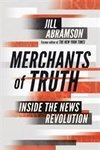

 Anglický jazyk
Anglický jazyk 
